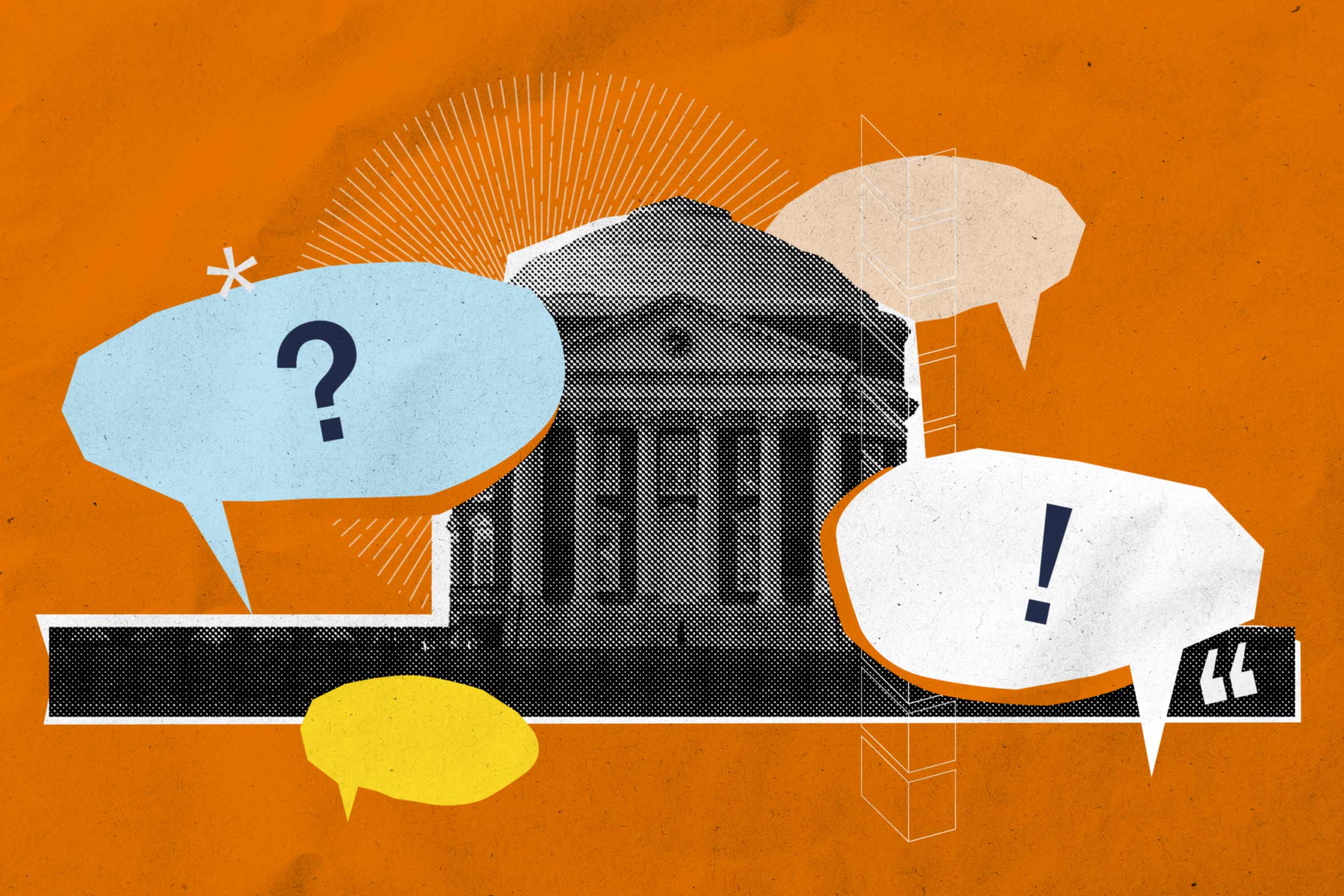The Karsh Institute of Democracy is expanding its Student Dialogue Fellowship, seeking to increase the ways students with differing ideas and political leanings can meaningfully engage with each other.
Based on the institute’s focus on democratic culture, the fellowship reinforces communication skills, mindfulness practices and a deeper understanding of the American political landscape.
Launched in fall 2024, the program builds on the institute’s dialogue initiatives and the research of UVA associate professor Rachel Wahl, who directs the institute’s Good Life Political Project. Originally envisioned as a small pilot, the fellowship quickly exceeded expectations, drawing overwhelming student interest.
To accommodate demand, Karsh partnered with seven UVA schools and units, ultimately welcoming more than 300 undergraduate and graduate students from 11 of UVA’s 12 schools.
“I’ve always been passionate about public service, and I came to college wanting to strengthen my ability to work across differences – not just be around people with different perspectives, but truly engage them,” first-year fellow Ahryanna McGuirk said. “When I learned about the fellowship, it felt like exactly what I’d been looking for.”
Graduate student Reid Jacobson, a military veteran, applied for similar reasons. “Coming from the military, I appreciated our ability to discuss contentious topics and disagree without diminishing each other,” he said. “Seeing the growing partisan divide, I wanted to promote disagreement that doesn’t turn into ‘othering.’”

Fellowship participants Ahryanna McGuirk, left, and Reid Jacobson say the fellowships help promote healthy disagreements among participants. (Photos by Lathan Goumas, University Communications)
Student Impact and Reception
To ensure a wide range of perspectives, fellows were placed in cohorts of about 50 students with diverse ideologies, backgrounds, experiences and fields of study. Within those groups, students were assigned to smaller discussion pods of about eight to 10 students, which met regularly, often over shared meals, for guided conversations supported by trained facilitators and faculty experts. The structure balanced openness with thoughtful direction, creating space for students to explore complex topics in a respectful and inclusive setting.
The fellowship has garnered attention at the local, state and national levels, and received strong support from UVA students, faculty and staff. Early feedback from students suggests the program is helping foster open dialogue and understanding.
In a post-semester survey, one fellow commented, “This fellowship helped me move past anger and assumptions so that I can actually listen to others with opposing views.” Another was “surprised and heartened to learn that so many students across the University are interested in having better conversations with people who hold different, and sometimes opposing, views. It gives me hope for the future.”
The same survey revealed that 100% of respondents would recommend the program to their peers, and 86% said it improved their ability to approach political discussions with intellectual humility.
Building on Momentum
In response to the program’s strong reception, the Karsh Institute is expanding the fellowship. Applications are now open for the 2025–26 academic year, which will include a new community engagement component, giving students opportunities to apply their dialogue skills in broader civic settings. At the same time, Wahl’s ongoing research will continue to assess the fellowship’s impact and inform its future development.
The Karsh Institute is exploring opportunities to expand the fellowship model beyond UVA. After learning about the program, faculty and staff at UVA’s College at Wise and several institutions across the country have initiated conversations with the Karsh Institute team about piloting similar efforts.







.jpg)


